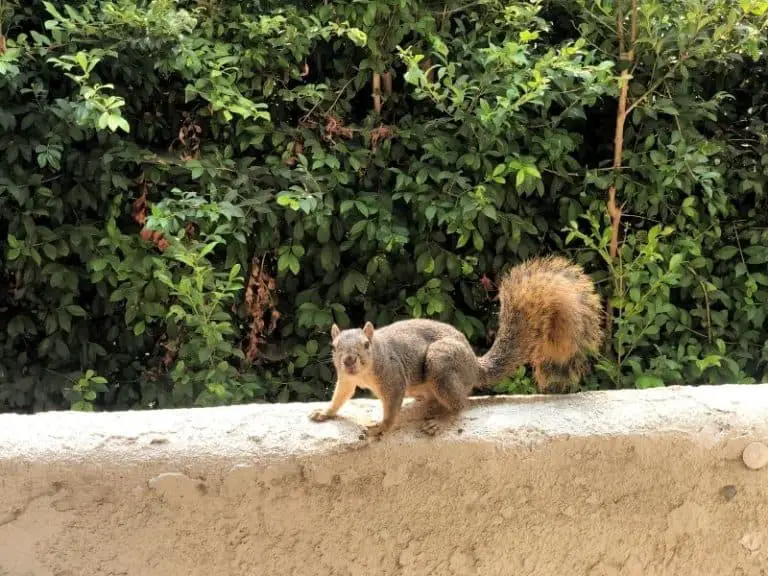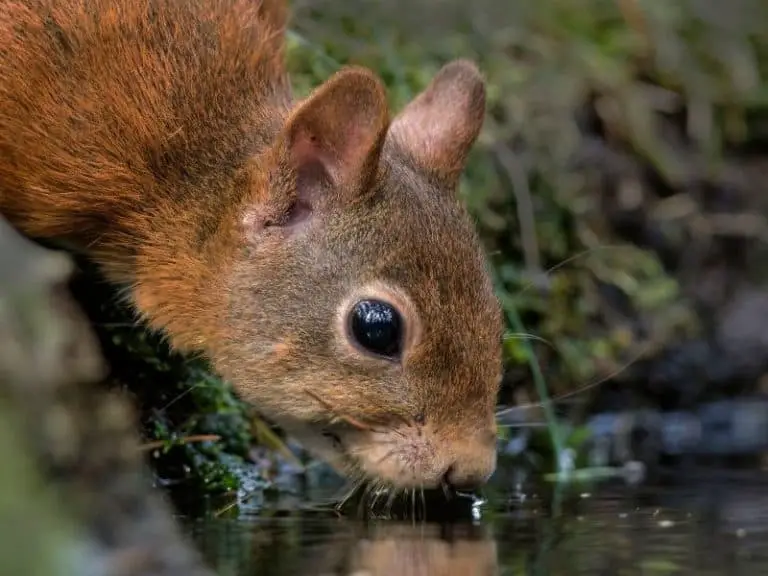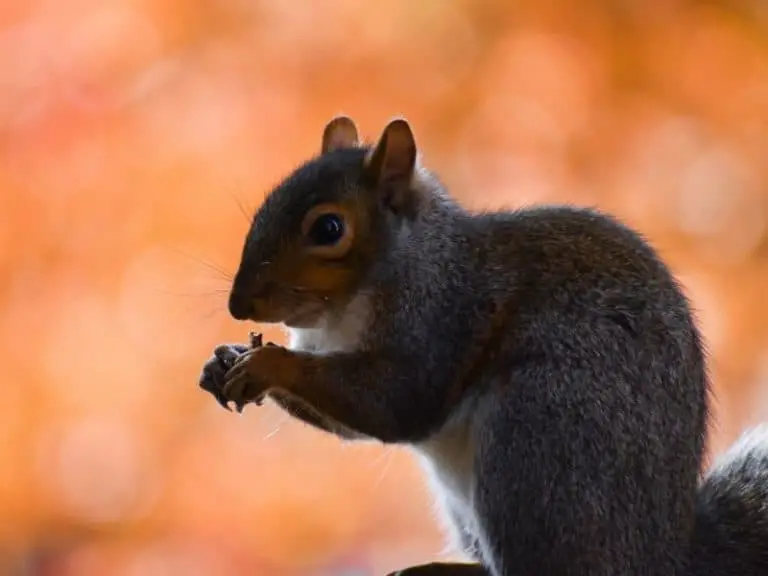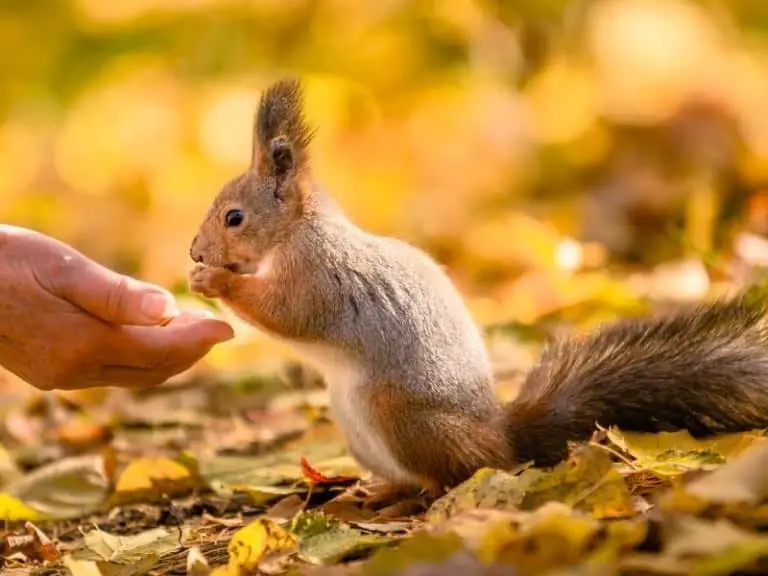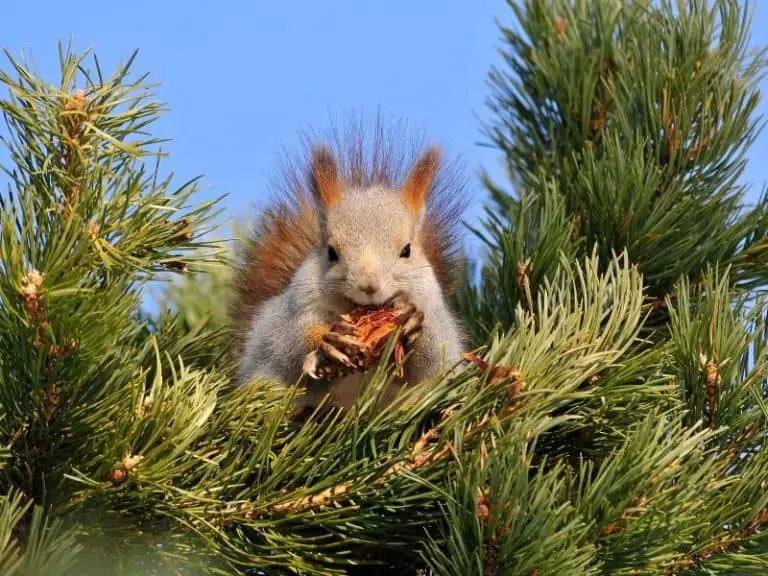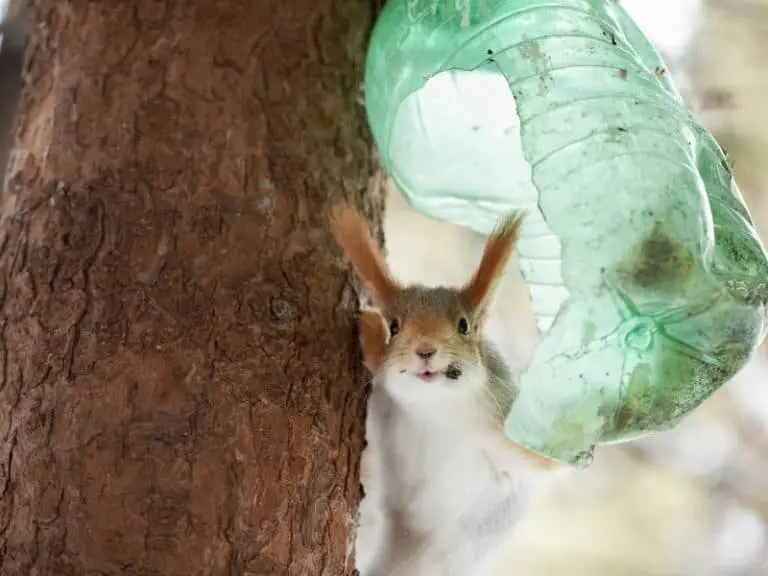How to Squirrel-Proof Your Car: Per Pest Control Technician
It’s no secret that squirrels love nesting in attics and in the walls, too. However, squirrels will also nest in anything that can give them protection from the elements, such as cars. When they nest in cars, they may chew on the wires and cause damage. And now you may be wondering how to squirrel-proof your car to keep it out of harm’s way.
Squirrel-proofing a car begins with squirrel-proofing the garage. The car engine and car wires may be protected from squirrels with the help of mothballs, taste repellents, and decoys. In some instances, keeping the engine clean or leaving the hood opened is enough to squirrel-proof a car.
Refrain from assuming that your home is the only thing that squirrels may invade and damage. Squirrels may invade your car, too, and wreak havoc on it.
Failure to spring into action right away can cause a variety of car problems to show up, many of which can be quite serious and may require intensive and costly repairs.
Keep on reading if you like to know how to squirrel-proof your car. Below, you will come across some of the most effective tips and tricks on protecting your car engine from squirrels without contacting a pest control company.
But First: Why Squirrels Love Your Car?
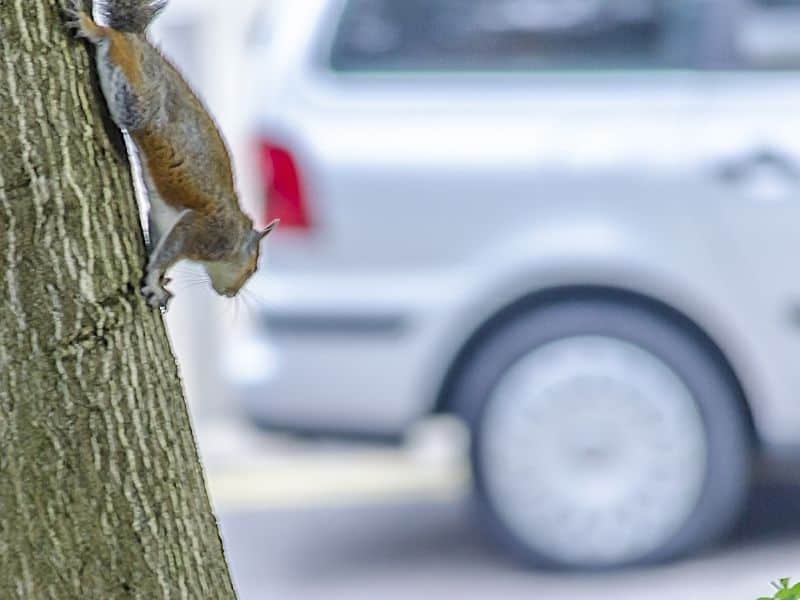
Many homeowners panic at the sight of squirrels on their property.
No one can blame them for reacting that way, especially if they are well-aware of the fact that squirrels may invade their homes sooner or later.
And when squirrels get inside their homes, all sorts of problems may come into being, from structural damage to health concerns.
Unfortunately, homes are not the only things that squirrels may invade. Squirrels may also invade cars!
If there are squirrels around and you have a car, there is a huge possibility for its engine to serve as a nesting place for squirrels.
Besides sleeping and mating in your car engine, squirrels may also hide food in there. Those gnawing creatures may chew on car wires, too, which can cause all sorts of problems with your car.
There are a few reasons why squirrels are drawn to your car engine:
- It provides them with warmth. Squirrels can nest in your car engine at any given time. However, it is more likely for them to make a home out of your car engine during the coldest time of the year. Especially after driving your car, its engine gives protection from low temperatures that squirrels need in the wintertime.
- It offers the perfect hiding place for nuts. One of the things that make squirrels hilarious is their love for burying nuts. In some instances, squirrels will hide nuts in your car engine where they are safe from food thieves. Unfortunately, the nut-burying habit of squirrels is no longer cute if your car is involved and at risk, too.
- It helps keep their teeth short. There is a reason why it seems like squirrels spend most of their waking times gnawing on things. And it’s none other than the fact that they need to wear down their teeth — the teeth of squirrels do not stop growing. Some of the things that squirrels love to chew on are car wires.
With so many things about your car engine that are favorable for squirrels, it doesn’t come as a surprise why squirrels may find it as the perfect spot for nesting, hiding food, and keeping their teeth in perfect shape!
Squirrels are generally harmless creatures. It’s for this reason why some homeowners install squirrel feeders in their yard. Alas, it is very much possible for squirrels to turn from charming to alarming.
This is particularly true when they stop gnawing on nuts and start chewing on your property and belongings, such as the components of your car engine.
Fret not because you can protect your car from squirrels. Don’t stop reading now — below, you will find some tried and tested ways to prevent your car wires and the rest of the engine from squirrels.
How to Keep Squirrels From Chewing Wires
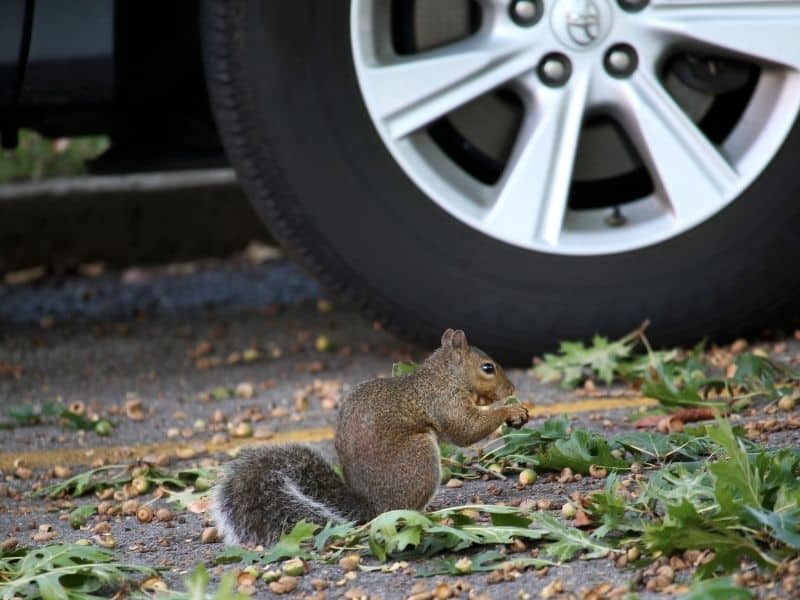
Wires can be protected from squirrels by placing mothballs near them because squirrels hate the way they smell. The wires may be sprayed with taste repellents to keep them off-limits to squirrels. Homemade spray with cayenne pepper or hot sauce may be applied to the wires every two days.
Like other rodents, squirrels have teeth that never stop growing until the day they breathe their last. To keep their teeth at just the right length, squirrels need to chew on all sorts of things all the time.
Otherwise, the teeth of squirrels will pierce their jaws, thus making it impossible for them to eat.
Some of the things squirrels like to chew on to wear down their teeth are wires.
Some of the wires they prefer to chew on are electrical wires, which is why any home is at risk of burning down if squirrels invade it.
As a matter of fact, thousands of house fires per year are due to squirrels chewing on electrical wires!
Besides electrical wires, other wires that squirrels love chewing on are car wires. Car wires are just as delightful to chew on as electrical wires for squirrels. However, they are usually more accessible than electrical wires.
The problem with squirrels chewing on car wires is that it can lead to all sorts of issues. They range anywhere from the headlights not lighting up to the car not starting.
Your car has many wires, and squirrels can choose to chew on any one of them. Because of this, it can be difficult to determine which car-related problem could arise.
Similarly, in many instances, it can be difficult to figure out which car wires have been chewed on and need to be replaced. Getting your car back in tip-top shape after being invaded by squirrels can take up lots of time and money.
If there are squirrels around and you don’t want to risk it, try any of the following:
Count on Mothballs
Squirrels don’t like the smell of mothballs. It’s exactly because of this why you may place some of them in your car engine to keep squirrels from chewing on the wires.
Some car owners pulverize mothballs to make it easier for them to fill the engine with their smell that can repel squirrels very well. While mothballs are very good at keeping squirrels at bay, unfortunately, they are also bad for the environment — their active ingredient can contaminate the soil and groundwater.
Apply Taste Repellent Spray
Online, you can easily get your hands on taste repellent spray. Like what the name suggests, the product has a taste that repels common household pests, including squirrels.
Different taste repellent sprays contain different ingredients, each one effective against certain pests.
Experts agree that the best taste repellent spray for squirrels is something that contains pepper or peppermint. Spray the product to car wires at least once a week to keep squirrels from chewing on them.
This is the one I usually use to protect my car:

How Do You Keep Squirrels Out of Your Car Engine?
Making a car engine less inviting can help keep squirrels out of it. Keeping the engine clean and opening the hood can discourage squirrels. Sealing off openings and squirrel-proofing the garage work, too. Mothballs, taste repellents and decoys can also keep squirrels out of the car engine.
Rather than protecting only the car wires from being chewed on by squirrels, it’s a wonderful idea to protect the car engine itself from being a nest or food hiding place for those beady-eyed rodents.
Besides preventing car issues related to damaged car wires, safeguarding the entire car engine against squirrels can help fend off many other problems, too, including the interiors of your car smelling like squirrel poop and pee.
Keeping squirrels from setting up camp in your car engine can also avoid costly repairs and replacements.
The good news is that you don’t have to spend a lot of money just to keep squirrels out of your car engine. Some of them can be as simple as allowing your car engine to cool quicker or removing leaves, twigs and debris.
Sometimes, all you have to do is place a realistic-looking predator in or near your car engine!
There are many different ways to keep squirrels out of your car engine to protect the wires and other components from winding up chewed on (or pooped and peed on) by squirrels.
The sooner that you carry out the necessary steps, the lower the risk of you facing serious and expensive car problems brought about by squirrels.
Without further ado, here are some of the things that you may give a try:
Keep the Engine Clean
Sometimes, something as simple as keeping your car engine free of debris and clutter is enough to keep squirrels at bay.
The presence of leaves, twigs, and others can make your car the perfect place for sleeping and mating in the eyes of squirrels. Regularly cleaning your car engine is an effective way to prevent a squirrel infestation.
It’s not enough that you keep your car engine neat and tidy. It’s also a must that you keep the area around your car clean.
The presence of nesting materials and food bits can attract squirrels and other common household pests, too.
Leave the Hood Open
It was mentioned earlier that warmth is one of the reasons why squirrels are attracted to a car engine.
This is why leaving the hood open, especially after using your car, can keep squirrels from finding your car engine a wonderful nesting place. With the hood open, they are just as exposed to low temperatures as anywhere else.
Unfortunately, it’s not always that this particular tip on how to squirrel-proof your car applies.
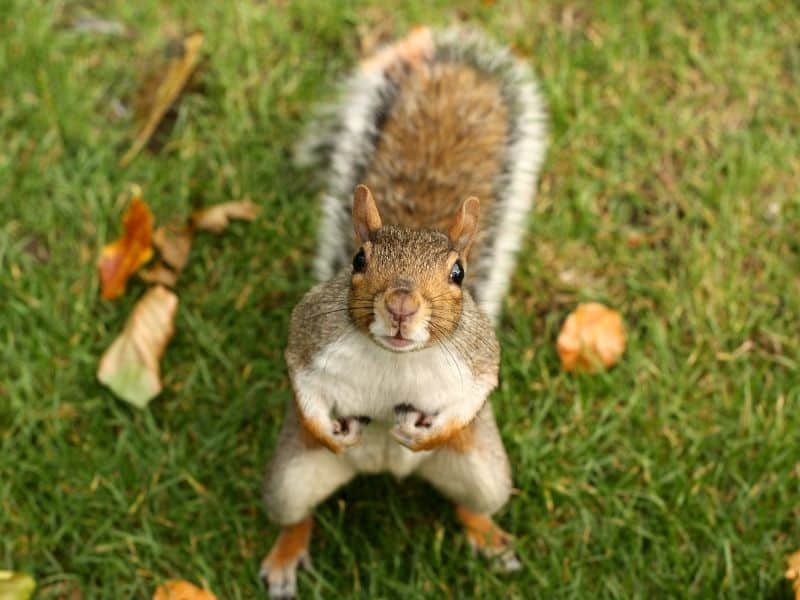
If you park your car outside your home, leaving the hood open can do more harm than good. It will expose your car engine to the elements, which can shorten the lifespan of some of the components.
It will also encourage dirt and debris to collect, and this can have an impact on your car engine’s performance one way or the other.
Just a word of caution: If your car has an under-hood light, remove the bulb when leaving the hood open to prevent draining your car’s battery. Similarly, unplug the hood switch (if available) beforehand.
Close Off Openings With Screen
Some homeowners use wire screens to block openings that can allow squirrels to have access to the car engine.
It’s true that the teeth of squirrels are sharp and strong enough to gnaw through wire screens and others that are out of softer types of metal, such as thin aluminum sheets.
However, if there are many other nesting places around, squirrels will leave your car alone the minute they realize that they will have to get past through wire screens beforehand.
But squirrels will not stop gnawing through wire screens if they desperately want their nest back.
Do squirrels come back to the same nest?
Squirrels do come back to the same nest. Especially if there are baby squirrels in the nest, a mother squirrel will come back to it. And if the nest is accidentally or deliberately blocked, a mother squirrel will do anything and everything to retrieve her babies and move them to another place.
Before you close off openings that can provide squirrels access to your car engine, make sure that there are no baby squirrels residing in your car.
Place Some Mothballs
Clothes are not the only things that mothballs can protect from being damaged by common household pests.
These tiny white balls that remind many people of grandma’s home can also shield your car engine and its many components, especially the wires, from being chewed on by squirrels.
Squirrels hate the smell of mothballs, which is why they will stay far away from them.
However, there are problems that come with the use of mothballs for squirrel-proofing your car.
First, mothballs are not only repellents but also pesticides — when ingested, they can kill squirrels and other animals.
Second, toxic chemicals in mothballs can mix with soil and groundwater, causing damage to the environment and danger to wildlife.
Rely on Taste Repellent Spray
The use of taste repellent spray is another solution mentioned earlier while we were talking about protecting car wires from being chewed on by squirrels. You can use the same product to safeguard the car engine and its many components.
Worry not if you don’t have the budget or time to buy taste repellent spray.
That’s because there is an alternative to it that may already be in the spice rack in your kitchen: cayenne pepper powder. All you have to do is sprinkle it liberally to car engine parts that squirrels may gnaw on.
Cayenne pepper powder is so effective for driving away squirrels that you may also add it to bird seeds. Birds do not mind ingesting cayenne pepper powder. On the other hand, the same cannot be said for squirrels.
Again, consult your trusted car mechanic before spraying or sprinkling anything on your car engine.
Create a Spray From Scratch
Besides buying taste repellent spray online, you may also make one in your kitchen. Worry not because the ingredients you will need are likely to be in your kitchen already. What’s more, they are 100% natural.
Dissolve one and a half teaspoon of cayenne pepper powder or hot sauce in four cups of boiling water.
Allow the mixture to cool to room temperature and transfer to a spray bottle. Shake very well and spray on car wires. For best results, the homemade taste repellent spray should be applied every couple of days.
Just a word of caution: Before spraying anything to your car wires, it’s a good idea to speak with your trusted car mechanic first. This is to ensure that it will not cause problems bigger than squirrels chewing on car wires.
Install Realistic-Looking Decoys
Besides nuts, squirrels eat many things, including those that lots of humans love to snack on — pizza, chips, donuts, cakes, peanut butter, etc.
Similarly, there are many animals that are above squirrels on the food chain, and you can count on these squirrel-eating creatures to protect your car engine from squirrels.
The good news is that you don’t have to buy them at the nearest pet shop or grab them in the wild. Heading to the nearest toy store is all that you need to do!
Rubber snakes, for instance, make for wonderful squirrel repellents — squirrels are terrified of snakes.
Place a handful of rubber snakes around and under your car. Just make sure that you regularly move the rubber snakes around to keep squirrels from suspecting they are not the real deal.
Just a quick tip: the more realistic the decoys are, the better!
Squirrel-Proof the Garage

It’s not enough that you successfully get rid of squirrels residing in your car engine. Making sure that squirrels won’t come back to cause the same problems all over again is a must, too.
This is when the importance of squirrel-proofing your garage comes in. Any gaps, cracks or holes should be repaired or sealed off.
Do not leave squirrels with any opportunity to get inside your garage. After all, squirrels can squeeze themselves through a hole as small as the size of a quarter!
Especially if your garage is adjoining the house to one side, squirrel-proofing it can keep not only your car engine from being damaged by squirrels but also other belongings and your home itself, too.
Just Before You Drive Squirrels Away From Your Car
Squirrels nest in car engines for different reasons.
They range anywhere from getting protection from the cold, hiding nuts from food thieves to keeping their teeth sharp and at just the right length.
No matter the case, one thing remains true: squirrels can wreak havoc on your car, especially when they chew on the wires.
The good news is that there are many ways to squirrel-proof your car. Above, we talked about some of the best.
Just like your home, it’s a good idea to keep squirrels from invading your car before they have the opportunity to cause all kinds of damage to it, many of which require expensive repairs or replacements.
You can start by making sure that squirrels won’t be able to get inside your garage. As always, prevention is better than a pound of cure.
If all else fails, you can always count on professional exterminators in your area.
Photo credit: ©canva.com
Medical Disclaimer: TheHomePestControl is a digital publisher and does not offer personal health or medical advice. The contents of this website are not intended to substitute for professional medical advice, diagnosis, or treatment.
Affiliate Disclaimer: As an Amazon Associate, I earn from qualifying purchases made on our website. If you make a purchase through links from this website, I may earn a commission at no additional cost to you.

